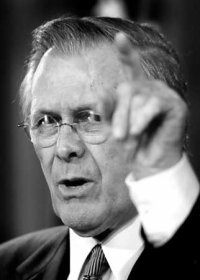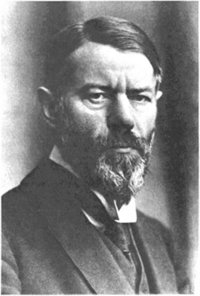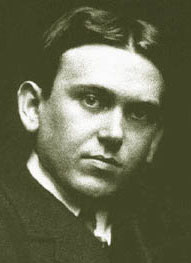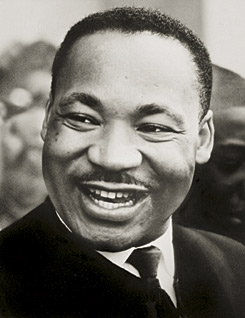One of Mikhaela Reid’s latest cartoons, besides being grimly funny, makes an excellent point about the financial-advice industry: it offers sensible advice for people who have the time, money, security, and leisure to take advantage of it, but nothing beyond moralistic hectoring for those who don’t. (Not that this is the fault of, say, Suze Orman; it’s the fault of the way that comfortable members of the middle and upper classes use the ideas they get from the financial advice industry as another way to bully people who make less than they do.) As Mikhaela glosses it on her website,
I am of course, referencing financial-advice programs like the Suze Orman Show and CNBC’s Mad Money w/ Jim Cramer (a popular show described by Businessweek as Louis Rukeyser meets televangelism meets Pee-wee’s Playhouse
). Not that Suze Orman doesn’t have sound financial advice, because she does–budget, save, invest, take realistic vacations, etc. (Jim Cramer, on the other hand, just strikes me as off his rocker, telling people to invest in crazy random stocks, but hey, what do I know?)
All of that is all very well for middle-class people (although maybe not as well as it could be when you think about college tuition and other skyrocketing costs). But there’s only so much people can do personally when they’re in really, truly horrible money situations and the social safety net has been pulled out from under them (see How Tax Cuts for the Rich Can Help You!).
With cuts to federal student aid, health-care programs, child-care programs, retirement programs, etc., the burden falls more and more on individuals. We hear more and more about individual responsibility to save for health-care, for retirement, for college. But you know what? When you make barely enough to feed your family, that’s a goddamned cruel joke. Expecting people who can hardly pay their rent in the moment to put away for the future is just bizarre. The math just doesn’t add up. There’s only so far you can squeeze a penny.
And these same jerks in the Bush Administration and Congress who are cutting the social safety net (didn’t they learn ANYTHING about poverty from the aftermath of Hurricane Katrina?) are happy to spend billions on the Pentagon, which then uses the money that could have gone to education and sound investments in the future of our country to bomb the crap out of innocent civilians in Iraq.
— Mikhaela’s News Blog (2006-01-15): New Cartoon: $AD MONEY! w/ Susie Poorman!
All of that’s true, of course. And well taken. But of course it leaves open the question: now what do we do about it?
One option that’s always available is to despair and do nothing. This seems, in fact, to be one of the most popular plans among professional-class Progressives
who don’t actually need to worry about these issues in their everyday lives. Actually, that’s not a bad plan for them to follow; I’d be quite happy if all the Progressives
out there kept doing nothing, given what happened the last time Progressives
got enthusiastic and active. But not everyone has that luxury, so let’s move on.
Another option is that you could get back into the lists and fight to recover the alleged government protections that have been lost: more social welfare programs, more regulations demanding that bosses give such-and-such benefits or such-and-such a wage to workers, repeal of free trade agreements, nationalized medicine, or whatever your bag is. But besides having any number of moral and economic objections to these ideas, I also just think that this is unworkable advice for people who don’t have the money, time, security, or leisure to get involved in politics. If the kind of advice that Suzy Orman has to offer isn’t going to get you very far in personal finance when you’re living on the minimum wage, it’s not going to get you very far in politics either, because politicians respond to political pull, and rich people have more resources for buying political pull than you do. The welfare
programs that you do get out of a strategy like this typically amount to little more than the bait on the steel trap of social control (government schooling, to take one obvious example; the government-sponsored dead-end employment agency known as TANF
to take another). And what politicians give, they can easily take away, as recent experience shows. The labor regulations that you get, when you get anything at all, are no less easily taken away, and also usually amount to yet another silver cord to bind workers to the bosses. (These days a lot is made of the fact that boss-provided medical coverage and pensions are in a state of crisis. That’s true. It might help demonstrate why the tax and regulatory structure that encouraged workers to depend on the bosses for their pensions and medical insurance was a bad idea to begin with.)
So, fellow workers, here’s my financial planning advice for you. Planning, investing, and saving is as important for folks working at or near the minimum wage as it is for the comfortable and the wealthy, but a different situation means different strategies. My suggestion is that you invest in membership dues for a fighting union, plan on firing your boss, and save yourself from depending on the milder sentiments of corporate or government bureaucrats for your money, your raise, your benefits, or your retirement. Let’s call it the John Brill Working-Class Rad Money Plan.
Like any other financial planning advice program, this one needs some Real Life Success Stories. Need a raise? Immokalee farm-workers joined a fighting union, and that’s what it got them. Need more money and a better benefits package? New York transit workers joined a fighting union, and that’s what they got.
But that’s not all, either. Here’s a couple of new stories. Neal Rysdahl joined a fighting union, and here’s what it did for him:
On January 14, 2005, members of the Chicago General Membership
Branch of the Industrial Workers of the World labor union (IWW)
called for an informational picket to boycott the Ideal Hand Car
Wash in Chicago’s Albany Park neighborhood after the managers and
owners of the business refused to pay Neal Rysdahl, a longtime
member of the IWW, the $227.50 he was owed for over 45 hours of
work he preformed for them.
The highly visible protest began at 8 AM, with a small but
dedicated group of picketers banging bucket drums, shaking
noisemakers, passing out leaflets, and carrying signs reading,
Ideal Car Wash Cheats Workers,
and An Injury to One is an
Injury to All!
Notably, one picketer dressed in a clown costume
held a sign reading, Ideal Bosses Are Bozos!
to mock the
clown Ideal usually uses to attract customers.
Humboldt Park Food Not Bombs showed up to serve bread, pastry,
hummus, and coffee, and joined in the picket. I knew this was an
important picket to support because it was an opportunity to make a
real difference in someone’s life through direct action,
said
Robert Clack, a member of Humboldt Park Food Not Bombs.
The picket effectively shut down business at the car wash for the
morning, as most drivers who intended to patronize Ideal drove away
after talking with picketers or seeing signs blasting the business
for unfair labor practices.
After only three hours of picketing, Eduardo Eddie
Amanero, a manager of the car wash, agreed to pay Rysdahl in full,
in cash, on the spot, in order to bring an end to the
picket.
The point of all this is, if you mess with one of us, you mess
with all of us,
said Patrick Brenner, a members of the National
Executive Board of the IWW. We stick up for our members.
… When asked what he was going to do with his back wages, Rysdahl
said, I’m going to catch up on some debts. And, of course, I’m
going to pay all of the back dues I owe to the IWW!
— Industrial Workers of the World (2006-01-15): Direct Action Gets the Goods! – IWW Chicago Victory for Unpaid Worker
And it’s important to remember that the success of the Brill Plan doesn’t depend on filling out the right set of forms. Of course a formalized union structure can help, but it isn’t necessary. The Brill Plan works from the bottom up; it begins when you get to know your fellow workers and agree to stand by each other. With no formal union and no government recognition, Wal-Mart employees in Florida still made a fighting union of their own, and here’s what it did for them:
In central Florida, Wal-Mart workers are fighting and sometimes
winning campaigns using collective action to solve both shop floor
and larger industry-wide problems.
In one rural Florida town, over 20 percent of workers in the local
Wal-Mart had their hours cut. In response, workers went into their
community with a petition to reinstate the workers’ lost hours, and
collected 390 signatures in three days. Their hours were returned.
In South St. Petersburg, a popular third-shift employee was accused
of theft and fired. The next day, half the day shift quit in
protest. In another store, 20 workers marched on management after a
70-year-old workplace leader had her schedule changed. Her schedule
was returned within days.
Several workers rode their bikes to work even though Wal-Mart
didn’t provide a bike rack. With some co-workers, they demanded
management buy a bike rack. When management refused, they bought a
rack with their own money and demanded that management install it.
Management gave in, and donated the cost of the rack to a local
charity.
These actions were initiated and led by members of the Wal-Mart
Workers Association (WWA), a growing group of 300 current and
former Wal-Mart workers in over 40 stores.
This is a protest movement of Wal-Mart workers uniting to make
their lives better at work and in their communities,
said Rick
Smith, WWA organizer and Florida director of the Wal-Mart
Association for Reform Now (WARN), a coalition of labor, community,
homeowner, and anti-poverty groups. It’s about Wal-Mart workers
sticking together, honoring their work, arranging carpools, and
providing child care for each other.
Non-majority unions such as the WWA don’t wait for a court to
license workers’ use of collective action. They harness that anger
and ingenuity to both win day-to-day victories and launch
longer-term pressure campaigns. The strategy has roots in
industries in which union recognition is rare: retail chain
workers, state workers, and computer programmers and manufacturers.
We have the right to organization, regardless of what the boss or the state do,
said Smith.
Infoshop News (2006-01-03): Even Without a Union, Florida Wal-Mart Workers Use Collective Action to Enforce Rights
There’s only so far you can squeeze a penny, but a fighting union means more dollars to squeeze or spend as you see fit. The Brill Plan works. When workers stand together, workers win. So if you’re working for a living and barely scraping by, the best financial advice that I can offer is: stop being sad and start getting rad.



 Today is Martin Luther King Jr. Day, a day to honor the life and the thought of Dr. King — a hagiographed, ignored, misunderstood, overrated, and indispensable man; one of our greatest Southern heroes; an agitator and a moral witness who gave long years of his life to the cause of the Freedom Movement, and who — underneath the television specials and the holy martyr imagery that so often serves to obscure and empty out his real, fallible, challenging, essential vision — played a vital role (together with
Today is Martin Luther King Jr. Day, a day to honor the life and the thought of Dr. King — a hagiographed, ignored, misunderstood, overrated, and indispensable man; one of our greatest Southern heroes; an agitator and a moral witness who gave long years of his life to the cause of the Freedom Movement, and who — underneath the television specials and the holy martyr imagery that so often serves to obscure and empty out his real, fallible, challenging, essential vision — played a vital role (together with 